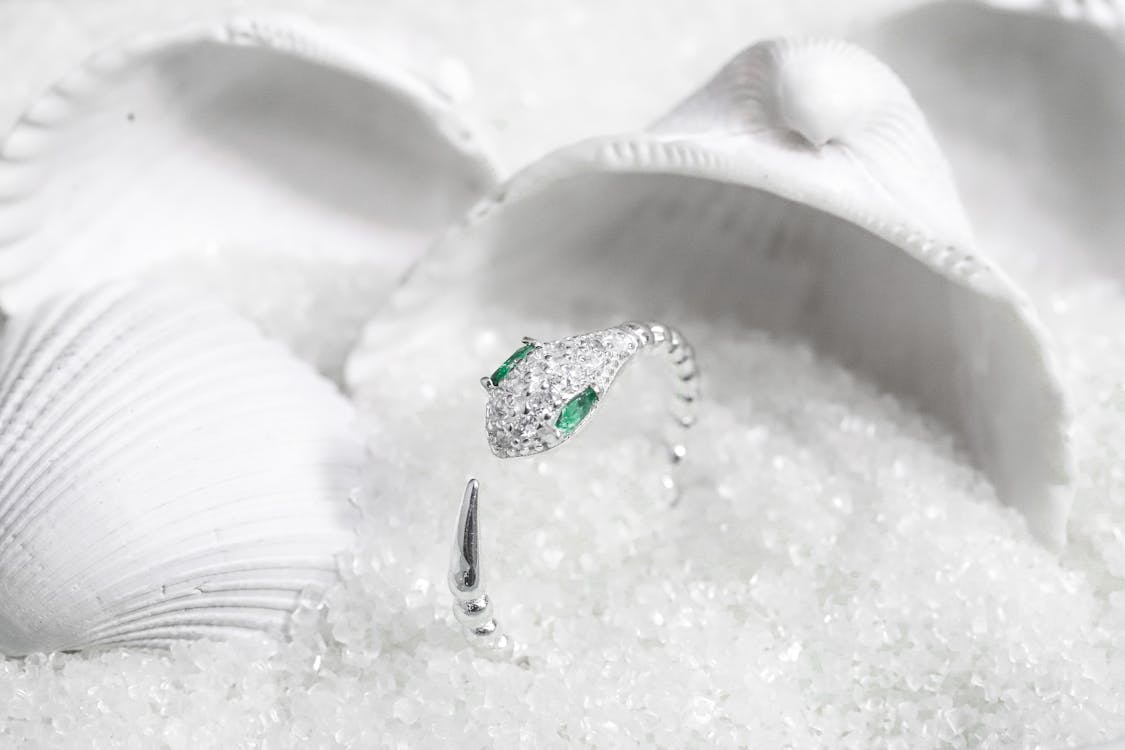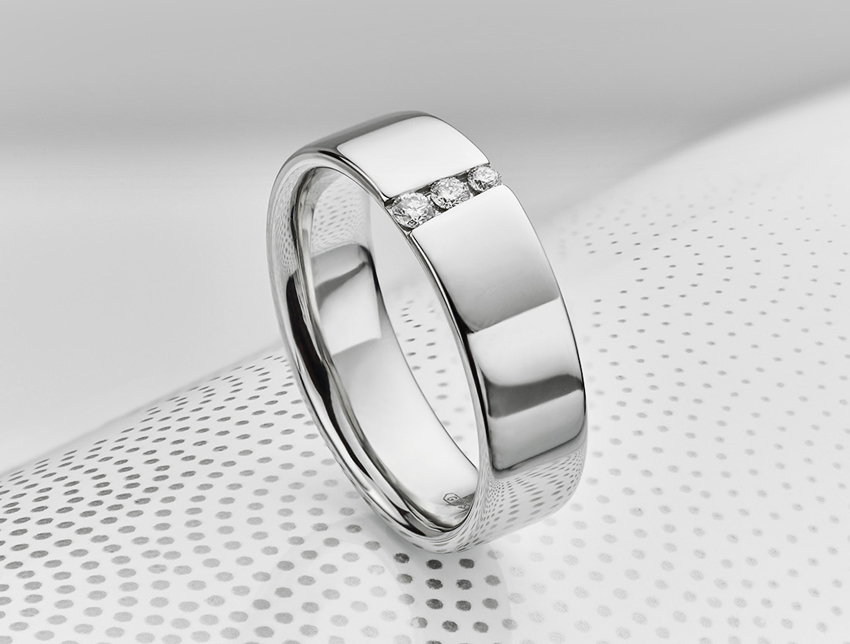When it comes to purchasing an engagement ring, many couples are increasingly seeking ethical engagement rings. These rings offer an alternative to traditional jewelry, ensuring that the diamond or gemstone used is sourced in a way that aligns with values of sustainability, human rights, and environmental protection. The rise in demand for ethical engagement rings reflects a growing awareness among consumers about the ethical concerns surrounding the diamond and jewelry industries. This article will explore what ethical engagement rings are, why they matter, and how to find the perfect one for your engagement.
Understanding Ethical Engagement Rings
Ethical engagement rings are designed with the intention of being socially responsible and environmentally sustainable. The term “ethical” in this context refers to the sourcing of materials used in the rings, such as diamonds, gemstones, and precious metals. Ethical engagement rings are made from conflict-free diamonds, recycled metals, or sustainably mined materials, ensuring that no harm is done to people or the planet during their creation. The rise of ethical engagement rings has been driven a growing concern for the negative impact that traditional diamond mining has had on communities and ecosystems around the world.
The Importance of Ethical Engagement Rings
The importance of ethical engagement rings cannot be overstated. Traditionally, diamonds have been associated with human rights abuses, environmental degradation, and exploitation. The term “blood diamonds” or “conflict diamonds” refers to diamonds mined in war zones, where profits are often used to fund violent conflicts. Ethical engagement rings offer an alternative ensuring that the diamonds and other materials are sourced responsibly. Choosing an ethical engagement ring means making a positive impact on the world and supporting the well-being of both workers and the environment. These rings provide peace of mind, knowing that your purchase is aligned with your values.
Conflict-Free Diamonds and Ethical Engagement Rings
A key feature of ethical engagement rings is the use of conflict-free diamonds. Conflict-free diamonds are those that have been sourced in compliance with the Kimberley Process Certification Scheme, which ensures that diamonds do not fund violence or human rights violations. When searching for ethical engagement rings, it’s essential to inquire about the diamond’s origin and certification. Many jewelers who specialize in ethical engagement rings provide full transparency regarding the sourcing of their diamonds. This allows consumers to make informed choices and ensure that their engagement rings are not contributing to the exploitation of workers or financing conflict.
Lab-Grown Diamonds: A Popular Choice for Ethical Engagement Rings
One of the most popular options for ethical engagement rings is lab-grown diamonds. Lab-grown diamonds are created using advanced technology that mimics the natural conditions under which diamonds form in the earth. These diamonds are chemically, physically, and optically identical to mined diamonds but are produced in a controlled laboratory environment, making them free from the ethical issues associated with traditional diamond mining. Lab-grown diamonds are often a more affordable and sustainable option, as they require fewer resources and energy compared to their mined counterparts. The availability of lab-grown diamonds has made it easier for couples to find stunning ethical engagement rings without compromising on quality or beauty.
Recycled and Fair-Trade Metals for Ethical Engagement Rings
In addition to conflict-free diamonds, ethical engagement rings often feature recycled and fair-trade metals. Traditional mining for precious metals, such as gold, silver, and platinum, can be environmentally harmful, leading to deforestation, habitat destruction, and pollution. By choosing ethical engagement rings that use recycled metals, consumers can significantly reduce the environmental impact associated with mining. Furthermore, fair-trade metals ensure that workers involved in the extraction and production process are treated fairly and receive a fair wage for their labor. This commitment to both environmental and social responsibility makes recycled and fair-trade metals an important component of ethical engagement rings.
How to Choose an Ethical Engagement Ring
When choosing an ethical engagement ring, it is important to do thorough research and ask the right questions. Look for jewelers who are transparent about the sourcing of their diamonds and metals. Reputable jewelers will be able to provide certification for their conflict-free diamonds and offer information about the sustainability of their materials. Additionally, consider the option of lab grown diamonds, which are an increasingly popular choice for couples seeking ethical engagement rings. When it comes to the design of the ring, there are also many options available that prioritize sustainability, from rings made with recycled metals to those with vintage or repurposed stones. By taking the time to carefully consider your options, you can ensure that your engagement ring aligns with your values and contributes to a more sustainable future.
The Growing Popularity of Ethical Engagement Rings
The growing popularity of ethical engagement rings is a testament to the changing attitudes of consumers who are increasingly concerned about the impact their purchases have on the world. As more couples choose ethical engagement rings, the jewelry industry is being pushed toward greater transparency and responsibility. This shift is encouraging more jewelers to adopt ethical sourcing practices and offer sustainable options. The demand for ethical engagement rings has made it clear that consumers care not only about the beauty and quality of their jewelry but also about the way it is made. As awareness continues to grow, the trend toward ethical engagement rings is likely to become even more widespread.
The Environmental Benefits of Ethical Engagement Rings
Ethical engagement rings also offer significant environmental benefits. Traditional diamond mining is resource-intensive, often requiring large amounts of water and energy while causing considerable damage to ecosystems. Ethical engagement rings, particularly those featuring lab-grown diamonds or recycled metals, have a much smaller environmental footprint. Lab-grown diamonds require less energy and water than mined diamonds, and their production generates fewer carbon emissions. Additionally, using recycled metals helps reduce the need for new mining, further lessening the impact on the environment. Choosing ethical engagement rings is one way that couples can contribute to the protection of the planet while still celebrating their love with beautiful jewelry.
Supporting Ethical Practices in the Jewelry Industry
By choosing ethical engagement rings, consumers are supporting businesses that prioritize sustainability, fair labor practices, and environmental protection. This helps to encourage a shift within the jewelry industry toward greater ethical responsibility. As more people choose ethical engagement rings, the demand for ethical and sustainable practices in the industry will continue to grow, ultimately benefiting both the environment and the communities involved in the production process. Supporting ethical jewelers not only ensures that your engagement ring is beautiful and meaningful but also that it has a positive impact on the world.
Conclusion
Ethical engagement rings are not just a trend but a reflection of a larger movement toward more responsible and sustainable jewelry. By choosing an ethical engagement ring, couples can celebrate their commitment to each other while also making a positive impact on the world. Whether through conflict-free diamonds, lab-grown diamonds, recycled metals, or fair-trade practices, ethical engagement rings offer an alternative to traditional jewelry that prioritizes people and the planet. As awareness continues to grow, the future of engagement rings will undoubtedly be shaped the values of sustainability, transparency, and ethical sourcing.


